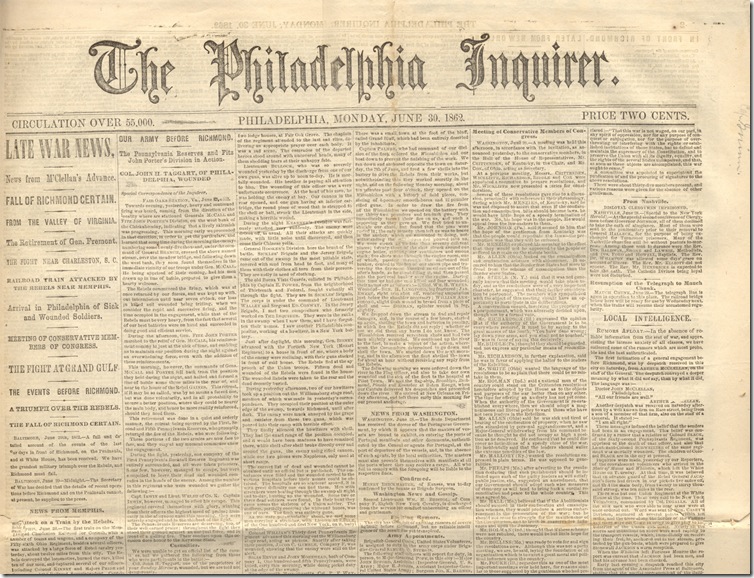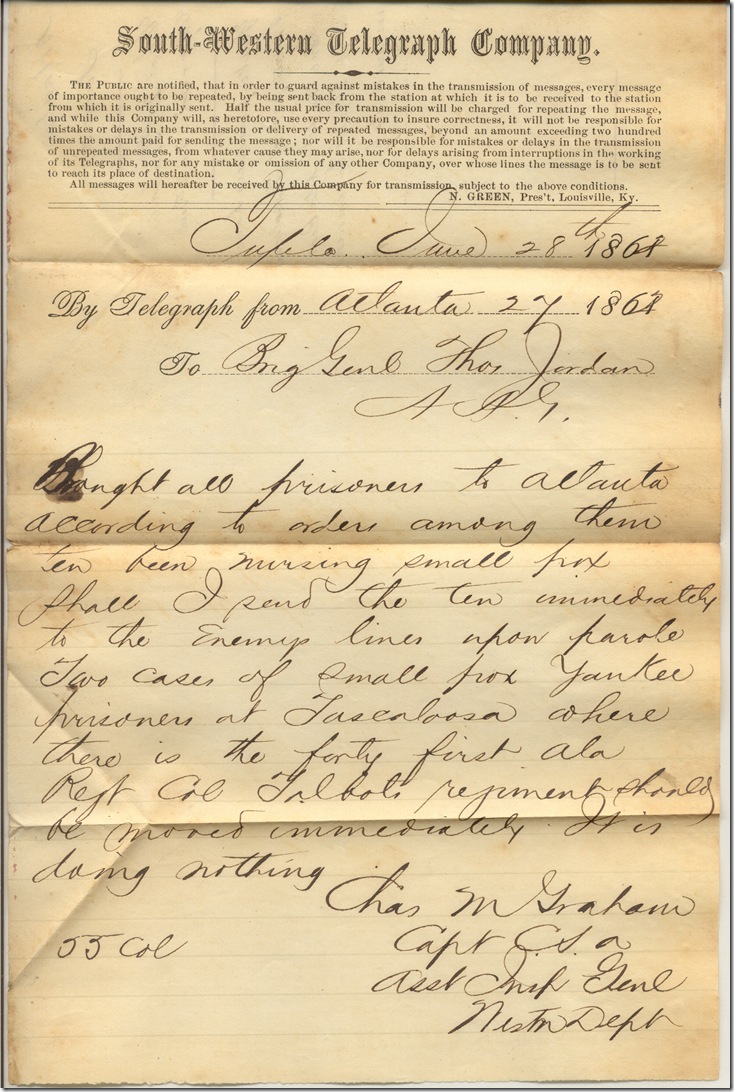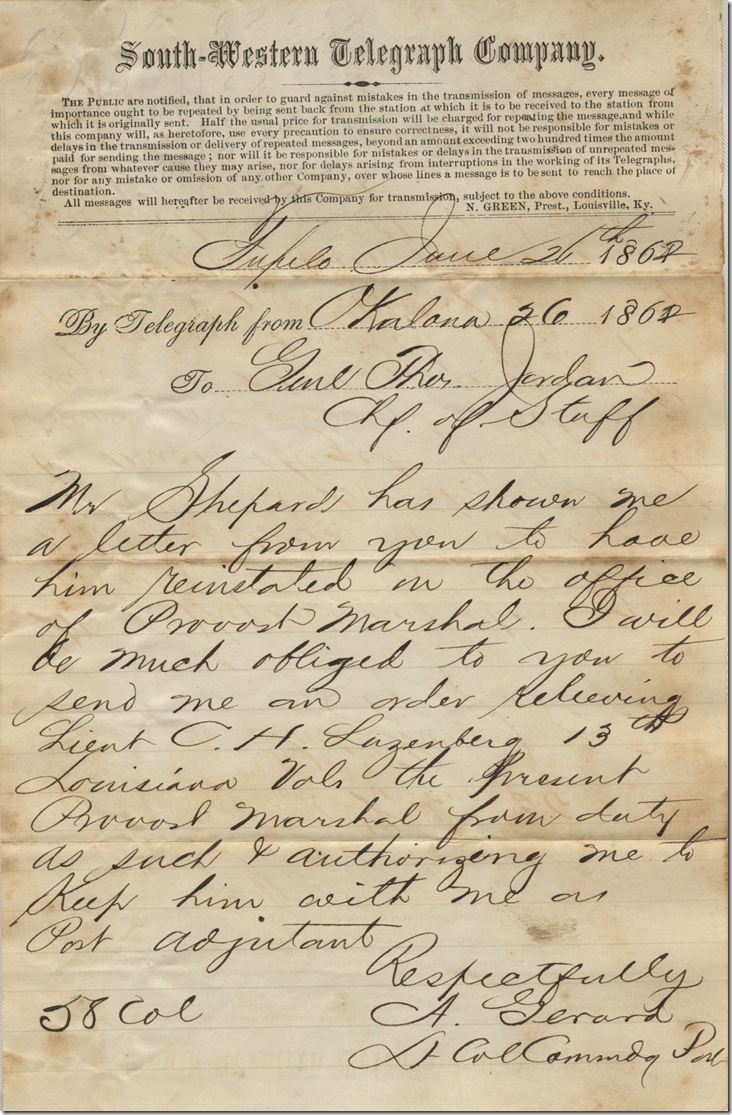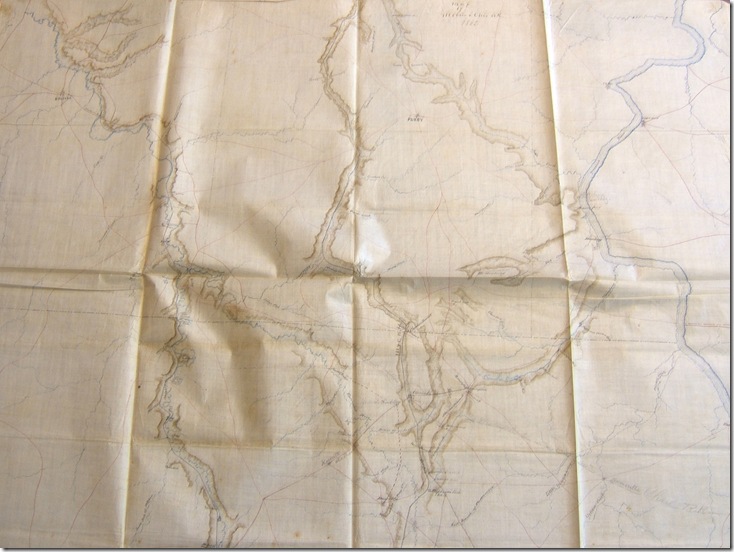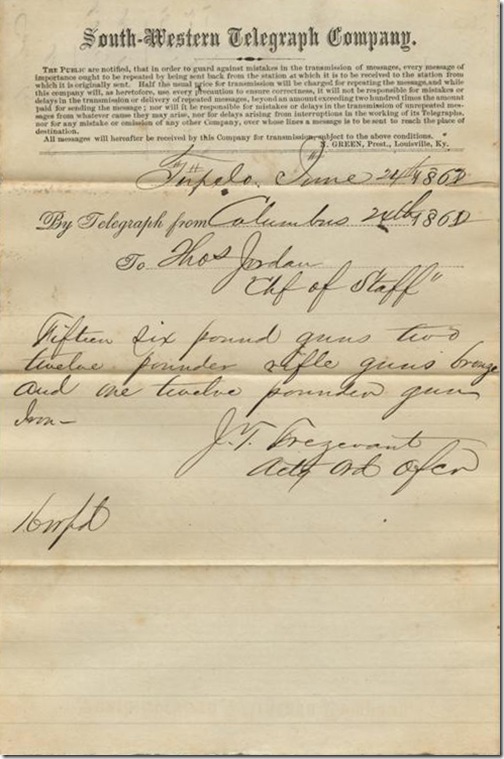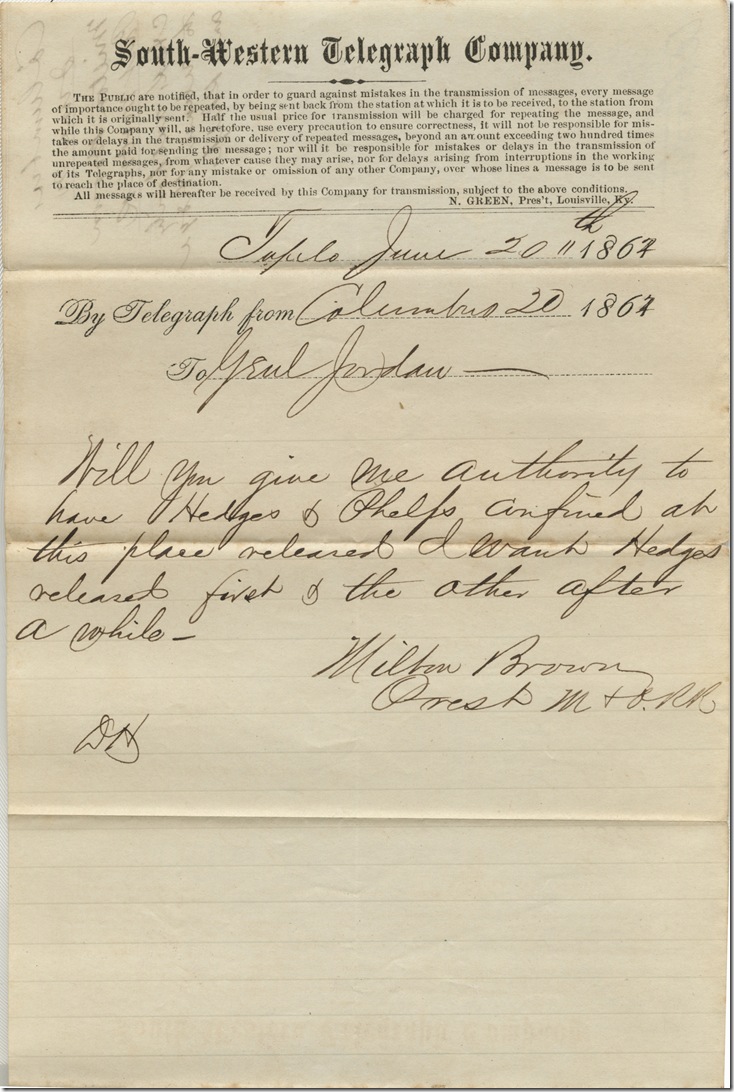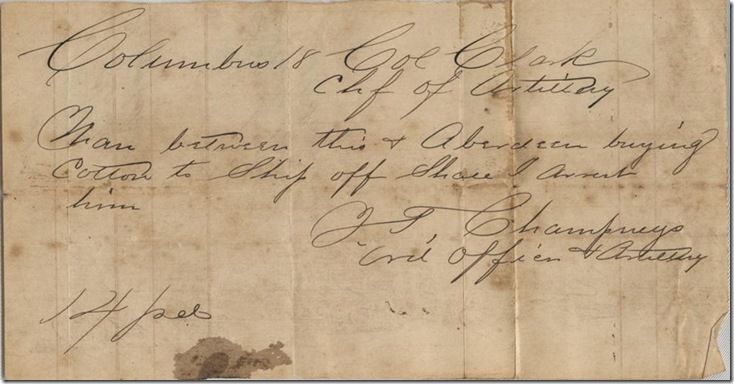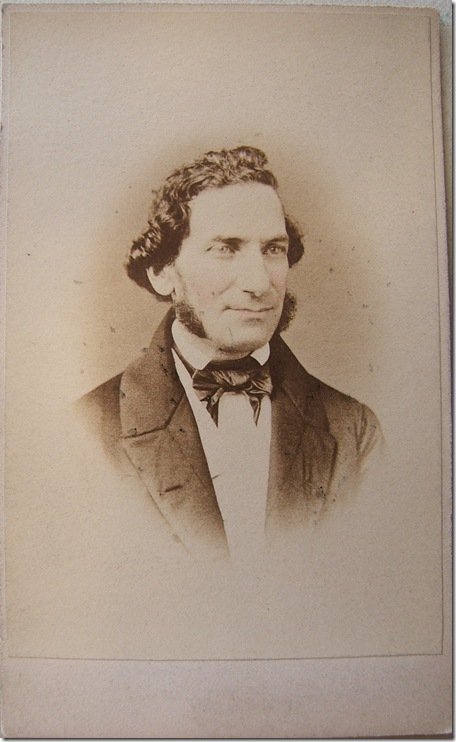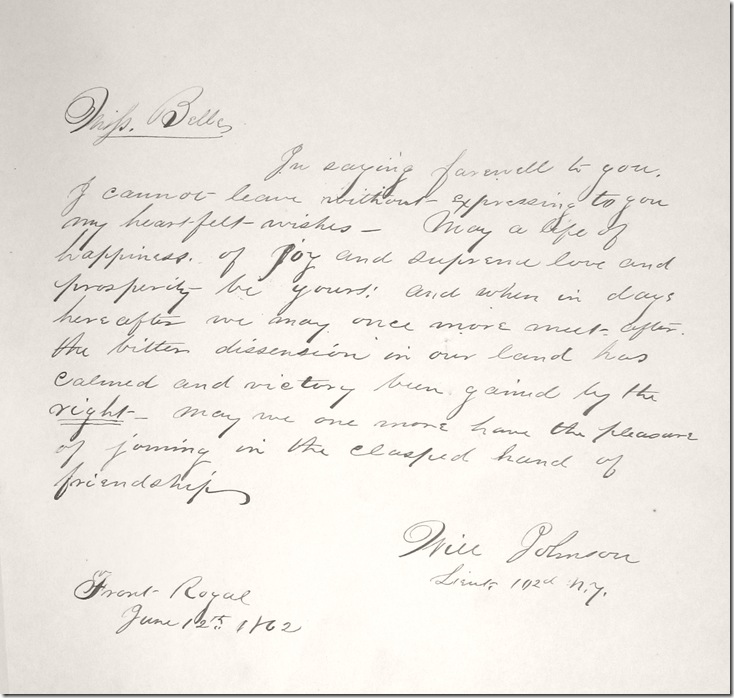John Riddle Warner was the grandfather of the poet Marianne Moore and during the Civil War he lived in Gettysburg, Pennsylvania. George Eyster was his brother-in-law and lived in Chambersburg. These letters are preserved as part of Marianne Moore’s family papers.
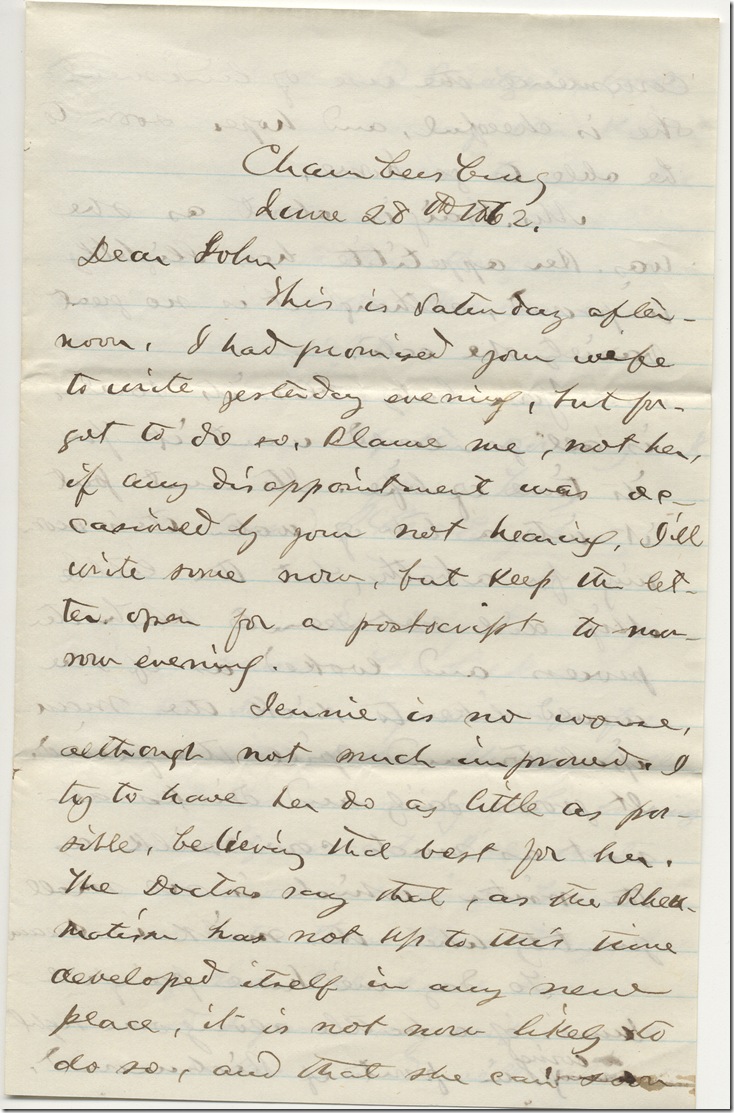
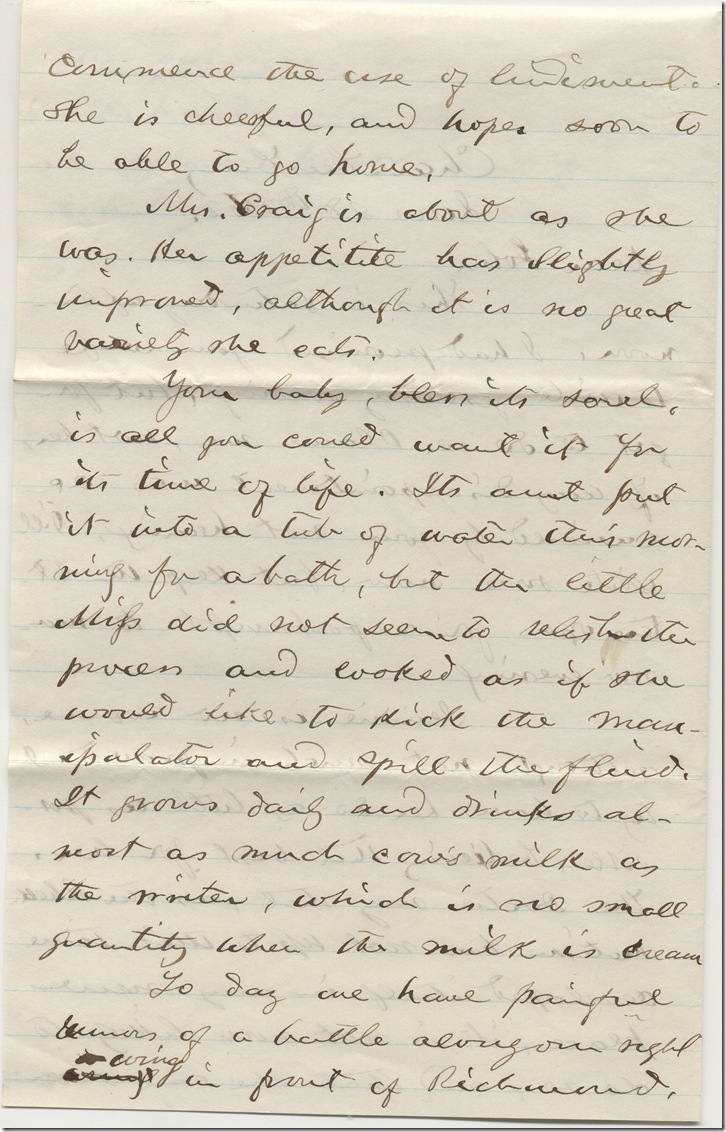
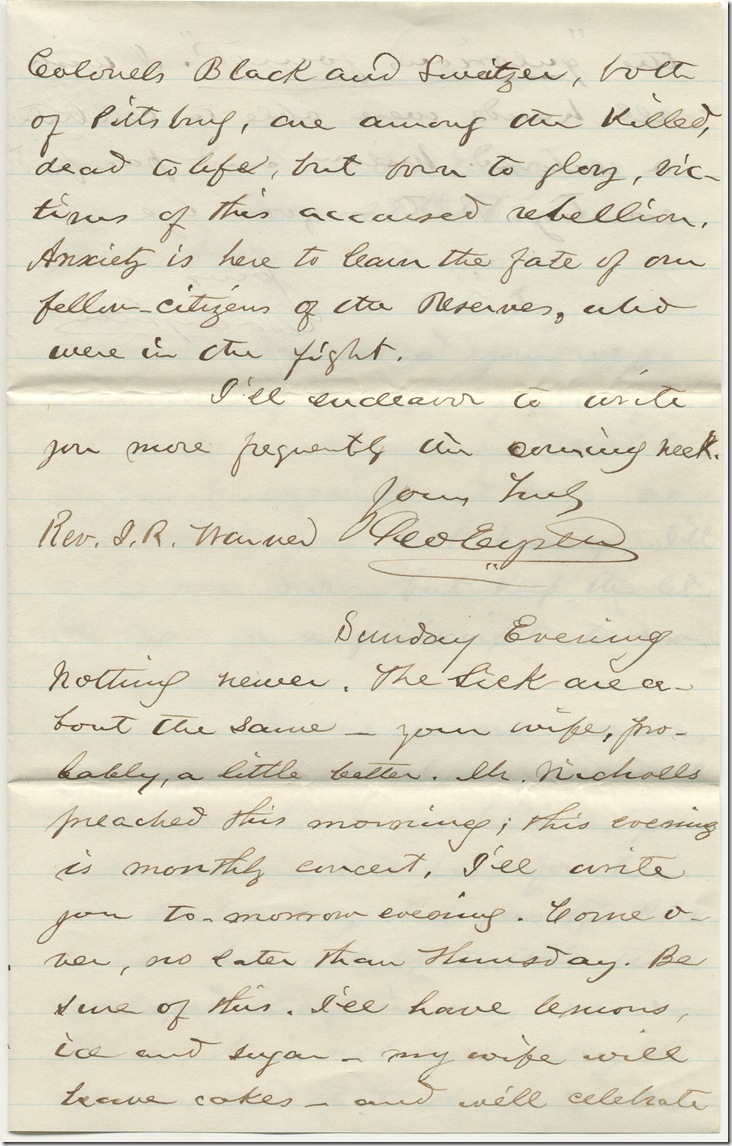
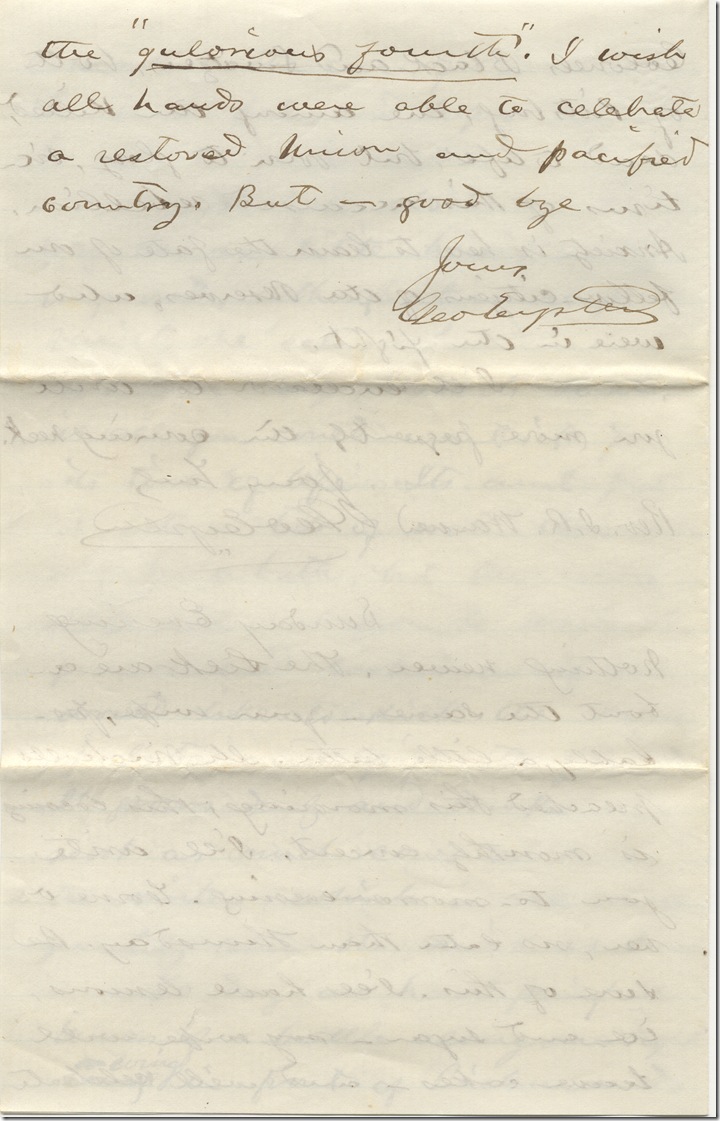
Transcript:
Chambersburg
June 28th 62
Dear John
This is Saturday afternoon. I had promised your wife to write yesterday evening, but forgot to do so. Blame me, not her, if any disappointment was occasioned by your not hearing. I’ll write some now, but keep the letter open for a postscript tomorrow evening.
Jennie is now worse, although not much improved. I try to have her do as little as possible, believing that best for her. The Doctors say that, as the Rheumatism has not up to this time developed itself in any new place, it is not now likely to do so, and that she can soon commence the use of liveliment.
Mrs. Craig is about as she was. Her appetite has slightly improved, although it is no great variety she eats.
Your baby, bless its soul, is all you could want it for its time of life. Its aunt put it into a tub of water this morning for a bath, but the little Miss did not seem to relish the process and looked as if she would like to kick the manipulator and spill the fluid. It grows daily and drinks almost as much cow’s milk as the writer, which is no small quantity when the milk is cream.
To day we have painful tremors of a battle along our right wing in front of Richmond, Colonels Black and Sweitzer, both of Pittsburg, are among the killed, dead to life, but born to glory, victims of this accursed rebellion. Anxiety is here to learn the fate of our fellow-citizens of the Reserves, who were in the fight.
I’ll endeavour to write you more frequently in coming week.
Yours truly
Geo Eyster
Sunday Evening
Nothing newer. The Sick are about the same—your wife, probably, a little better. Mr. Nicholls preached this morning; this evening is monthly concert. I’ll write you to-morrow evening. Come over, no later than Thursday. Be sure of this. I’ll have lemons, ice, and sugar—my wife will have cakes—and we’ll celebrate the “glorious fourth.” I wish all hands were able to celebrate a restored Union and pacified country. But—good bye
Yours
Geo Eyster
Citation: George Eyster, autograph letter signed to John Riddle Warner. Chambersburg, Pa.; 28 June 1862. Moore VI:05:07
